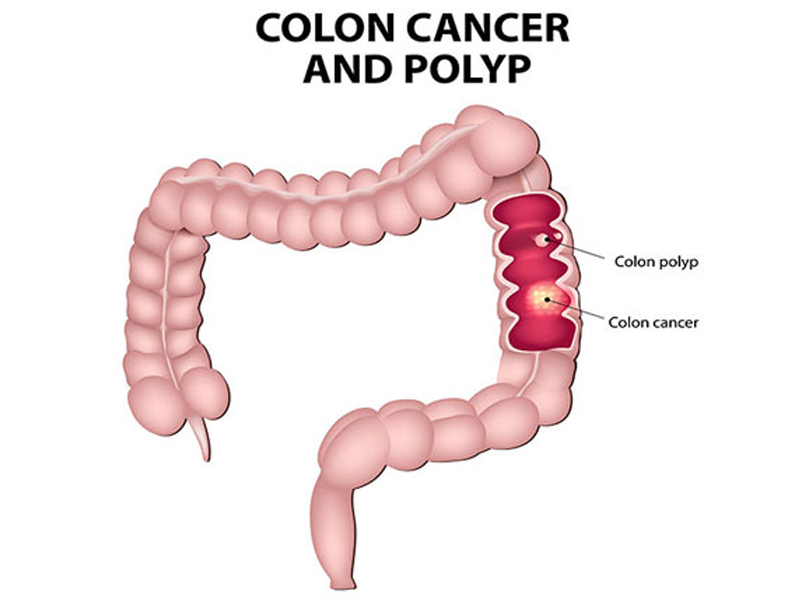Treatment
Intestinal Cancer

The colon, or large intestine, is where the body extracts water and salt from solid wastes. The waste then moves through the rectum and exits the body through the anus.
Here are some key points about colon cancer. More detail is in the main article.
- Colon cancer affects the large intestine and it usually starts with polyps in the wall of the intestine.
- Symptoms may not appear until a later stage, but if they do, gastrointestinal problems are common symptoms.
- Treatment involves a combination of chemotherapy, radiation therapy, and surgery, possibly resulting in a colostomy.
- A healthy lifestyle with a high-fiber, low-fat diet can help prevent colon cancer, and screening can detect it in the early stages.
Symptoms
There are often no symptoms in the earliest stages, but symptoms may develop as the cancer advances.
- diarrhea or constipation
- changes in stool consistency
- loose and narrow stools
- rectal bleeding or blood in the stool
- abdominal pain, cramps, bloating, or gas
- pain during bowel movements
- continual urges to defecate
- weakness and fatigue
- unexplained weight loss
- irritable bowel syndrome (IBS)
- iron deficiency anemia
